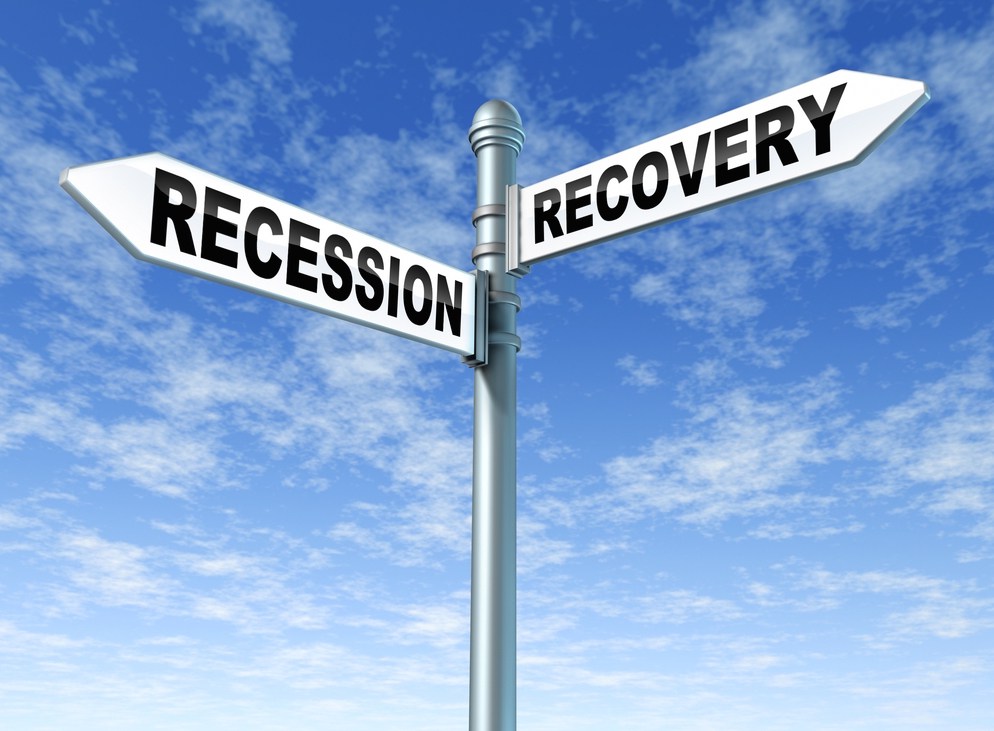
…we should seize this period to correct the structural and attitudinal deficiencies that make us vulnerable to global economic shocks. This is the time to keep hope alive. To unite around the common cause of moving Nigeria out of economically troubled waters into the calm seas of prosperity and progress. We can do it.
We are afflicted in every way, but not crushed; perplexed, but not driven to despair; persecuted, but not forsaken; struck down, but not destroyed. – (2 Corinthians 4:8-9).
In July 2016, the Nigerian Finance Minister announced that the Nigerian economy had technically gone into a recession. And there have been diverse reactions to this. What, however, is a recession? The American National Bureau of Economic Research defines an economic recession as “a significant decline in economic activity spread across the economy, lasting more than a few months, normally visible in real GDP, real income, employment, industrial production, and wholesale-retail sales.” But the question is, what is expected of a nation in a recession?
In 2009, the Japanese economy, as with most economies in the world, was hit by a steep recession. It suffered a fall in production and exports and its real GDP value was cut by 12.1 percent. To combat the recession, the Japanese government embarked on a stimulus package and fiscal policy regime that helped stimulate the country’s decreased employment rate, gave incentives for energy efficient products, gave loans to business owners and ultimately pulled the economy into a recovery.
According to the Financial Times, most of the eurozone also managed to beat the great recession through a combination of growth stimulus packages and fiscal discipline. A research by the Institute for Economic Freedom and Opportunity at the Heritage Foundation also showed that countries who had a culture of fiscal discipline, had greater policy flexibility and were less likely to suffer a protracted slump. So in the least, our attitude should be defined by:
This is not the time to give in to despair. We need a positive attitude, a renewed sense of optimism, because nothing else, however economically sound, will work without a positive attitude. This is not the time for bickering or blame shifting. We have to work together.
1. Discipline. In the first place it was gross indiscipline and waste that brought us to where we are. And as such a fiscal policy with zero tolerance for waste should be pursued at all levels, whether, private, public or corporate. There has to be a complete overhaul in the way we approach spending, savings and investment. This is a time for making sacrifices and leadership at every level has to exemplify it. We have to find the will power and the courage to cut down every area of expenditure that does not add direct value to the economy and invariably to the people.
2. A positive mindset. “The only thing we have to fear is fear itself.” These were the words of Franklin Roosevelt to the American people in the midst of the great depression of the 1920s. This is not the time to give in to despair. We need a positive attitude, a renewed sense of optimism, because nothing else, however economically sound, will work without a positive attitude. This is not the time for bickering or blame shifting. We have to work together.
We will get past the recession with all hands on deck. But we must not miss its teachable moments (which would include looking inwards). Furthermore we should seize this period to correct the structural and attitudinal deficiencies that make us vulnerable to global economic shocks. This is the time to keep hope alive. To unite around the common cause of moving Nigeria out of economically troubled waters into the calm seas of prosperity and progress. We can do it. We have to do it and by God’s grace, we will do it.
END

Be the first to comment